In March of 2021, my husband purchased and moved into a home near Ericeira in Portugal. Here, I’ll guide you through the process of buying a property in Portugal, and share many lessons we learned along the way. We had innumerable questions throughout our home buying process. As every experience is different I can’t hope to answer all of your questions here, but I do hope I answer some of them!
Note that I am not a lawyer, real estate agent, or finance professional, I am simply recounting my personal experience with this process. I recommend working with professionals in Portugal, who also speak your language, to help you on your journey!
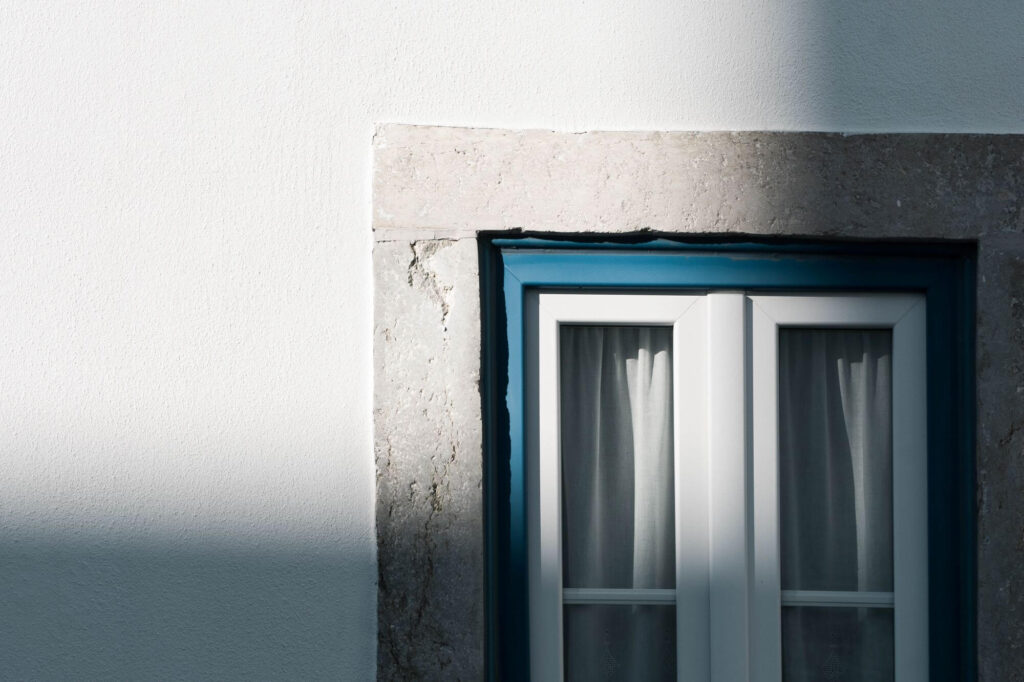
Can You Buy Property in Portugal as a Foreigner or Temporary Resident?
In a word, yes! Portugal encourages foreign investment in property, and it is possible to purchase property here as a foreigner or temporary resident. Our path to purchase property was as temporary residents so that is what I’ll talk about here. We came to Portugal on D7 visas in November 2020 and received our temporary residency permits (valid for two years) in January.
If you have €350,000 – €500.000 or more in cash to invest, you will likely want to consider the Golden Visa route. The rules for this are currently changing, and this was not our path, so I won’t be going into details of that here.
Where Do I Even Begin?
Buying a property anywhere is a huge step, and doing so in a foreign country can feel entirely overwhelming. I promise though – if we can do it, so can you! Here’s a brief outline of what we did to buy our house in Portugal.
- Get approved for a D7 visa, and arrive in Portugal.
- Obtain a Portuguese fiscal number (NIF)
- Secure a mortgage
- Work with a real estate agent and look independently for our new home
- Engage a lawyer to help us navigate the purchasing process
- Make an offer on a house
- Confirm our mortgage and sign a promissory contract (CPCV)
- Finalize the mortgage and sign the final deed for the property
- Set up utilities
- Move in!
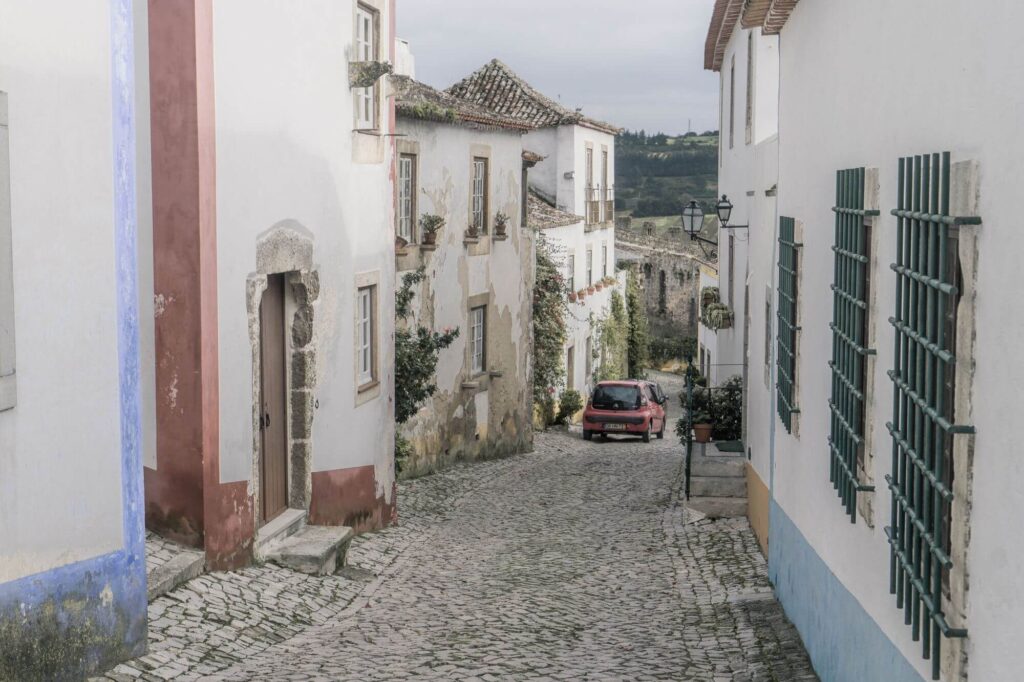
Mortgage
How Do You Get a Mortgage in Portugal as a Foreigner?
Portuguese banks do offer mortgages to foreigners and temporary residents. However, different banks may deem your residency status differently, and this will greatly impact the terms and required down payment of your mortgage. In our case, some banks didn’t consider us residents as we had been in the country for a relatively short period of time, so they required a 30% down payment. Other banks did, which dropped our down payment to 20%. I’ve heard of some banks allowing for a down payment of as low as 10%.
We evaluated mortgages through several streams: from direct quotes at the bank, through a mortgage broker, and through our real estate agent. Mortgage terms and conditions vary widely, so I highly encourage you to use multiple sources to find the best option for you. Work with your real estate agent and don’t hesitate to engage more than one mortgage broker to make sure you get the best offer.
What's the Best Bank for a Mortgage in Portugal?
At the time of writing, in 2021, interest rates are incredibly low in Portugal. We were offered interest rates for our mortgage as low as 0.5%, but the real cost of mortgages here goes beyond the interest rate. Most banks only offer the best interest rate for clients who agree to their other financial products, including a bank account with fees and insurance. This is allegedly reflected in the APR (Annual Percentage Rate) of a mortgage proposal, but we found that calculating all of the associated fees ourselves was the most accurate way of comparing different mortgage options. The APR didn’t always reflect the true costs of the mortgage, so do not take this at face value.
We received mortgage proposals from four different financial institutions at the beginning of 2021. Interest rates varied from 0.5% to 2.3% for mortgages with terms between 360 and 480 months (30 – 40 years) and a variety of fixed, variable, and mixed interest rate options. The annual costs for mandatory products like insurance and bank accounts varied from around €$1,000 – €2,300 per year, with the lower interest rates tending to correspond to higher additional costs. The effective cost of the mortgage ended up being between 4.4% and 5.3%, once all annual costs were accounted for.
One-time fees vary between providers as well, though less significantly. These costs include your home appraisal, fees for setting up the mortgage, etc. These ranged from about €1200 – €1800 in the quotes we received.
In the end, we opted to go through UCI for our mortgage. We got a fixed rate of 2.33% for 30 years. Despite this being the highest interest rate we were offered, their annual costs were lower and offered more flexibility, so this was the best option for us. We don’t expect interest rates to remain this low forever, so locking in a low fixed rate for such a long period of time was extremely attractive.
Generally, the maximum age to pay off a mortgage in Portugal is 75, so your age will impact the length of term offered.
Depending on the terms offered to you, the length of your mortgage, and your future plans, you may find that a fixed, variable, or mixed mortgage is the best for your situation. I recommend getting quotes for all three scenarios from each bank to compare.
What Information Do I Need to Supply for a Mortgage Evaluation?
The exact documents that you need to supply will vary slightly based on the bank but, in general, we were asked for some or all of the following:
- Passport
- Portuguese Temporary Residence Card
- Portuguese NIF
- Tax return from the last two years (ours were Canadian)
- Pay stubs from last three-four months and/or employment contract (ours were Canadian)
The Bank Isn't Getting Back to Me!
Erm, welcome to Portugal. What you’ve heard about slow (or no) responses is very true. We also came to learn that phone calls and WhatsApp messages are much more successful for moving things along than emails. I tried my hardest to set aside my fears of being the pushy North American trying to rush things along and learnt to pick up the phone and bug people to get responses. Okay, I admit it, I’m still terrible at this. But I try!
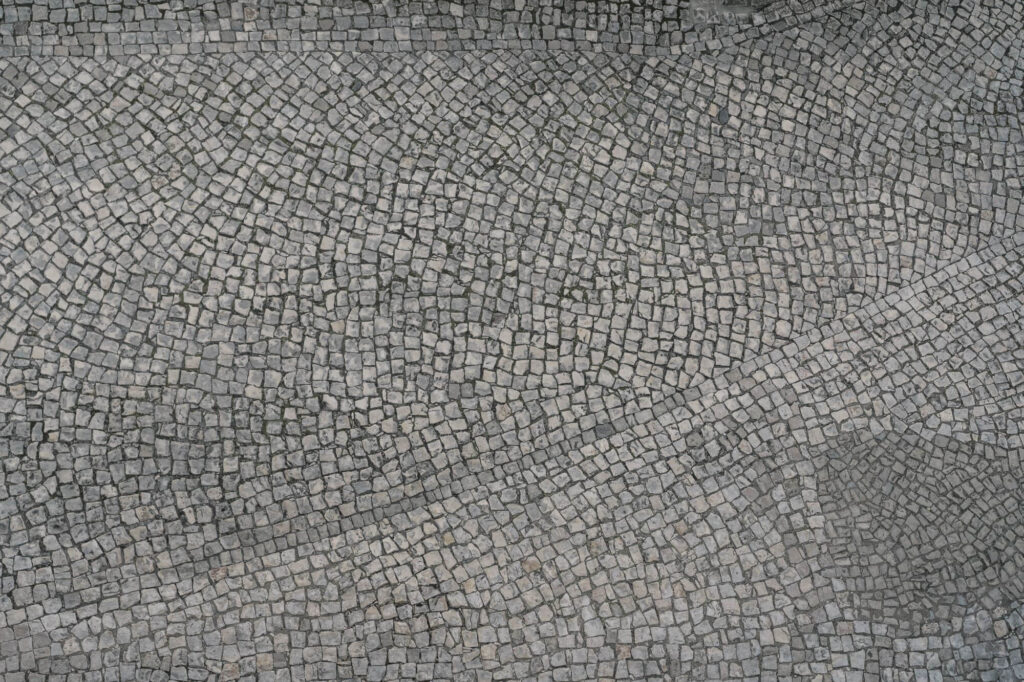
Finding Your Property
How Does the Real Estate Market Work in Portugal?
If you’re coming from Canada (like us) or the USA, be prepared for some major differences in how the real estate market works in Portugal. Here are a few key things to note about the market in Portugal:
- There is no MLS or central listings agency.
- Properties can be listed with multiple real estate agents (or none) which can lead to confusion between the multiple agents, different listings prices, properties listed that are no longer for sale, and other interesting challenges.
- Real estate listings are notoriously inaccurate. From the price to the location, you may see huge variances in the same property listed on multiple websites, or even on the same site multiple times over. It takes some serious sleuthing to discern where a property is actually located as the address and even the neighbourhood is, more often than not, not included in the listing. This may be done to prevent buyers from finding the house, approaching the sellers directly, and cutting agents out of the deal entirely. It is also highly inconvenient for house shopping as the location is generally the #1 consideration when determining if a home will be a good fit.
- In the past, it was not typical for a real estate agent to represent a buyer. This is becoming more and more common but some agencies (and private sellers) will not want to work with a buyer’s agent as they need to split (or pay) the commission. This is increasingly rare but it is still something you may run into.
- Buyer’s agents don’t hustle like you might expect. It was our experience, which I’ve heard echoed numerous times, that folks working with a buyer’s agent still did a lot of the work of finding properties they were interested in.
- You have to work all angles. Work with multiple agents, keep looking for properties yourself, and contact sellers directly if necessary. We quickly found following what we perceived as the “rules” and trying to work things in a linear path with our chosen agent wasn’t going to get us what we needed.
Should I Work With a Buyer's Agent in Portugal?
I would recommend seeking out a buyer’s agent who specializes in your area in Portugal to help you on your real estate hunt. It can be invaluable to have someone who speaks your language and Portuguese fluently to help navigate the system here. But don’t stop there. No matter who you are working with, continue to search for properties yourself on real estate websites and by scouring the neighbourhoods you’re interested in. The house we ended up purchasing was one that we found online, rather than one that our agent found.
When we first began our journey to purchase a home in Portugal, we were split between Lisbon and Ericeira. We started working with Lisbon-based agents but then found we were leaning towards Ericeira more and more. It became clear that we needed someone with local expertise as our agent wasn’t familiar with the area and didn’t have their finger on the pulse outside of the city. Used to operating with an exclusive buyer/agent relationship in Canada, we weren’t quite sure how to extract ourselves from working with our first agent. It all happened naturally in the end, but I would encourage you to not have the same hesitation I did if an agent is working out for you. Contact multiple agents at the beginning of your search and see who is the most responsive, proactive, and understands your needs the best. Don’t be afraid to work with multiple agents as they may show you different properties.
Any reputable agency in Portugal will show you listings from any other agencies, but there does appear to still be some resistance to this, and agencies may be more likely to show you properties from their own (or partner) agencies to keep commissions in-house.
Do I Need a Buyer's Agent to Purchase Property in Portugal?
While it’s recommended, if you can find the right person to work with, you can certainly purchase a property without a buyer’s agent here. In fact, that’s what my husband and I ended up doing.
We were working with agents from out of town and sent them a property we were interested in seeing. They let us know it wasn’t available for viewings due to COVID restrictions, but we were really interested and had begun to recognize our Lisbon agents weren’t the best fit for our Ericeira search. We contacted the selling agency directly and they immediately set up a viewing for two days later.
Since we approached the property without our agent, we wouldn’t be able to bring them in now. We viewed the property and put in an offer on the spot.
There were a few very stressful days as we researched everything that we could about the purchasing process, now that we were proceeding agent-less. We engaged a local lawyer to help us review all contracts and she was invaluable. Whether you have a real estate agent or not, I highly recommend that you engage a lawyer well-versed in property to represent you throughout the process.
Where Should I Search for Properties in Portugal?
Conglomerate Websites:
While there is no central listings agency in Portugal, there are a few websites that have pretty decent round-ups of properties for sale.
Note that these listings can often be out of date, inaccurate, or downright fake, so use your best judgement when perusing these sites. I found Idealista the best overall. I set up custom searches and received automated emails alerting me of new listings for a few months before arriving in Portugal, so I had a pretty solid sense of the market and what I could expect before we even arrived.
Physical Scouting:
Real Estate Agency Websites:
There are many real estate agencies in Portugal. Some of these operate on a local basis and often dominate the local market, so it is well worth checking your area for smaller operators. While the conglomerate websites capture many listings, they don’t capture them all so you may find certain properties only on the websites of individual agencies.
Large, national agencies in PT include (but are certainly not limited to):
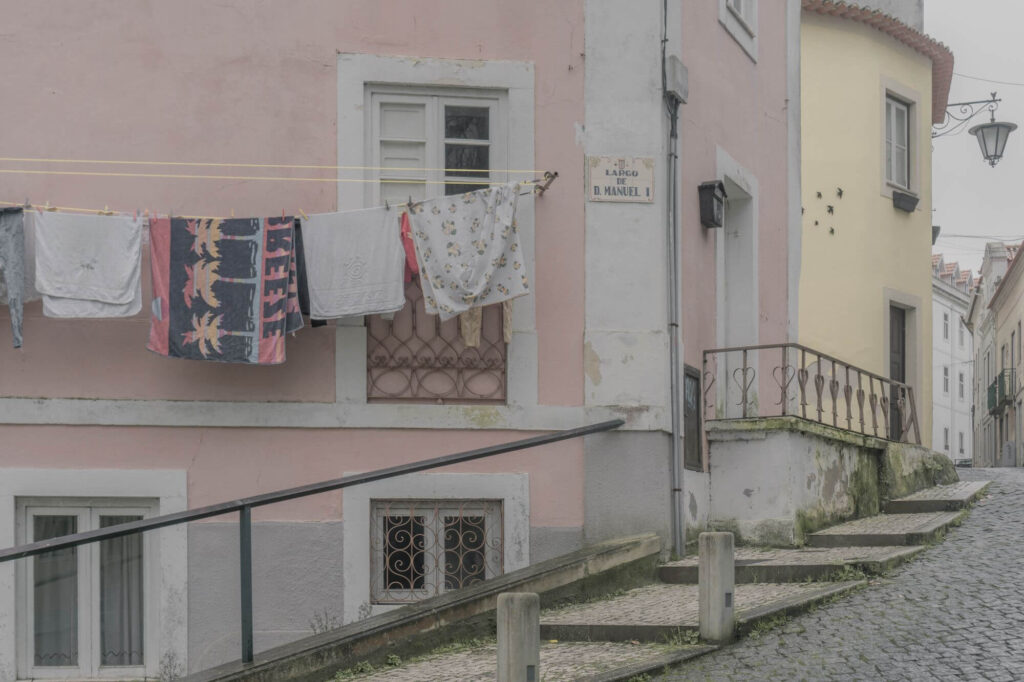
Buying Your Property
What Are the Steps to Purchasing a Property in Portugal?
You’ve found your dream house, apartment, or quinta! Congratulations! While I’m sure it wasn’t easy to get this far, you haven’t quite crossed the finish line yet. Here’s what happens next.
Making an Offer + Reservation
The first step is to make an offer on the property and “reserve” it.
The exact steps involved here seem to vary, depending on the situation, and this was the part that was the least clear when we started our purchase.
We made an offer and the seller’s agent said that, normally, the offer would be accompanied by a cheque for somewhere around €5,000, to illustrate our full intention to proceed with the purchase. If the sale were not to go through at this point, the money would be returned. Because we didn’t have Portuguese cheques we did not do this, which the agent said was fine. In other resources, I’ve seen it indicated that the reservation fee is paid after the offer is accepted, and held in escrow by the buyer’s lawyer (which makes more sense to me).
The purpose of the reservation is to take the property off of the market. As our property was not officially reserved, it remained on the market and thus we ran into a challenging scenario of needing to pay money to have the property evaluated by the bank so our mortgage could be approved and to have the house inspected (for our own peace of mind), all without a guarantee the house wouldn’t be sold to someone else. It was not ideal, so I recommend proceeding with a reservation if you can, in line with your lawyer’s advice.
You will also likely be told that there are other interested parties and possibly even competing offers on the house. This is a common sales technique to encourage you to move quickly and also offer high. Of course, there is no way to know if this is true or not, and you just need to proceed with whatever feels comfortable for you.
Property Inspection
Property inspections are not common in Portugal and you may even get resistance from the seller or their agent about having the place looked at. “It’s all in great condition, no problems.”
Regardless, we were keen to get the property inspected as we are unfamiliar with Portuguese construction, the house had a pool, and we wanted to have a better idea of what we were getting ourselves into.
Some people use builders or engineers to inspect properties, particularly for those that are going to need a lot of work, so they can also get an estimate for the job. Our house was in good condition and we just wanted any potential issues flagged, so we used TJ Property Inspections, which does inspections around the country. At €470 it wasn’t cheap, but we were happy we had the place looked at by someone and it helped us prioritize our repairs once we moved in.
After our inspection, we went back to the sellers in an attempt to renegotiate with some issues that had come to light. In our case, they didn’t budge on the price, but in many circumstances having required repairs identified in the inspection may also help you negotiate a lower price on the home.
Lawyer
I highly, highly recommend engaging a local lawyer to represent you during the process, whether you are working with a buyer’s agent or not. Some real estate agencies include lawyer services for their clients. This is probably a suitable option but note that the lawyer isn’t working solely for your best interests but also for the agency’s best interests. We appreciated having someone representing us entirely throughout the process.
After we made our offer, we found a lawyer in the area (thanks, Google reviews) who we reached out to and asked for an estimate to work through the rest of the process with us. Our lawyer walked us through the purchasing process and helped us figure out everything that we needed to complete the sale.
You and/or your lawyer will need to review the following documents from the sellers:
- Title Certificate (Caderneta Predial)
- Land Registry Certificate (Certidão Predial or Certidão Permanente) – this has details about the property and indicates if there are any leins or mortgages on it.
- Usage License (Licença Habitação) – this indicates the intended use of the property, and that it is licensed for its intended purposes.
- Certificado Energético (Energy Certificate) – all properties sold in Portugal need to have an energy certificate indicating their efficiency.
You and/or your lawyer will also check the local urban plan at the City Hall (Câmara Municipal) to make sure that the house matches the city plans. We went with our lawyer to check the plans as she had not visited the house, so we could compare the measurements that we had taken at the house with what the city had on file. Ours matched up, but it’s not uncommon for houses to be a different size than the city records, have unregistered pools or outbuildings, or have other discrepancies.
Depending on your municipality, you may be able to access general city planning information online. It’s very useful and interesting to check out the plans for your area. You can check your overall property against the plans for accuracy and also see how the areas around you are zoned. The Mafra municipal plan interactive map can be found here. Search for Plano Diretor Municipal and your area, to find out if there is something similar in your municipality.
Promissory Contract / CPCV
The next stage in the process is signing a promissory contract, a Contracto de Promessa de Compra e Venda (CPCV). This is a legally binding contract for both parties. At this point, everyone is committed.
Do not sign a CPCV if you have any doubts about purchasing this property, without a mortgage approval, or if there is anything else that may prevent the sale from going through.
The CPCV includes the terms and conditions of the agreement. It states the timeframe for finalizing the sale, what is included in the sale, and any other pertinent details. If both parties agree, a clause stating that the sale is dependent on mortgage approval can be included, but if you are buying in a competitive market in Portugal this is not likely something that the sellers would agree to.
Make sure that the CPCV specifies what is staying with the property as it is very common in Portugal for things like appliances, light fixtures, and other affixed items to leave with the sellers.
At the time of signing the CPCV, the buyers pay a deposit or down payment to the sellers of normally around 10% of the purchase price of the property. If the buyers default on the contract, that money is forfeited. If the sellers back out of the agreement, they must pay twice the deposit back to the sellers as a penalty. So the CPCV is definitely a commitment.
We signed our CPCV at the real estate agent’s office, with the sellers, their agent, ourselves, and our lawyer. Then, we all walked to the notary where they did signature recognition on the document. Sometimes, the CPCV is signed at the notary office.
Final Deed
Your CPCV will state how long you have to complete the final sale. In our case, it was within 60 days, but we were eager to get our house and move in as soon as possible, so we only took about three weeks.
In between the CPCV and the final deed, your bank will need some time to finalize the mortgage, including visiting the property and conducting a valuation if this hasn’t already been done. Once finalized, you’ll set the date for the final deed. In our case, the seller’s agency organized the notary for us, and we all met to sign the final documents. This included us, the sellers, the seller’s real estate agent, our lawyer, our mortgage representative, and the bank’s lawyer.
First, we signed our final mortgage documents, then we all proceeded into a room with the notary. The notary read the entire final deed out in record-fast Portuguese. She was clearly an auctioneer in another life. We all signed off on the final deed, passed over our cheques, and then paid all of the taxes and fees to the notary.
Here is where you really feel like you are just throwing money all over the place, as this is when you pay the following:
- The remainder of the down payment, by bank cheque, to the sellers (likely 10% of the purchase price, if your total down payment is 20%. Your bank will have a cheque for the remainder of the purchase price, which equals the amount of your mortgage).
- Property transfer tax (IMT), which is progressive and based on the purchase price of the home. In our case, it was 3.2%. This was paid in two installments directly to the notary, one amount for each of us.
- Stamp duty, fixed at 0.8% of the purchase price. Again, this was paid in two installments.
- Registration fees
- Notary fees
- Mortgage costs, including the opening, preparation, solicitor fee, and stamp duty (.6% of mortgage).
This was perhaps the stage of the process where we felt the most like bumbling idiot foreigners. We had issues with our bank cards (despite having tested them that day) and we were thankfully able to pay most of the fees through a handy “state taxes” function in our mobile banking app. I recommend having a backup method of payment.
This post includes a detailed breakdown of all of the costs associated with purchasing a property in Portugal.
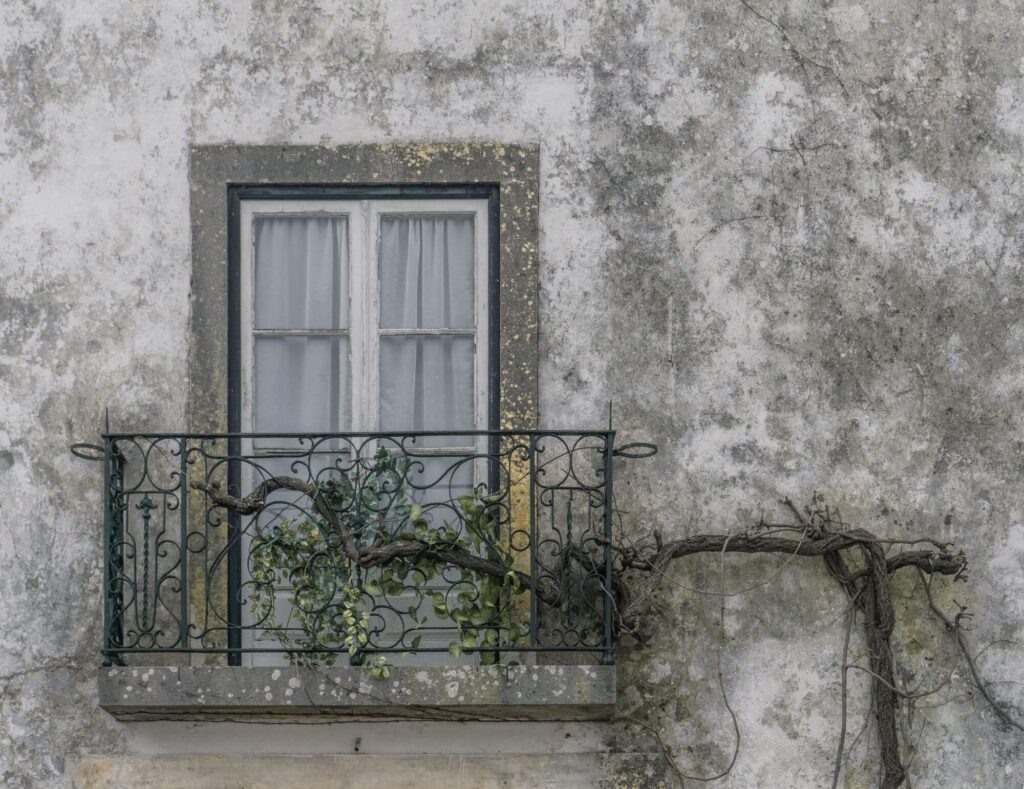
Congratulations!
And that’s it! After you’ve handed over the cheques, signed the documents, and paid all of many, many fees, you’ll be the official owner of a property in Portugal!
The sellers will give you the keys and you can move into your beautiful new home. Welcome, vizinho!

Thank you for sharing your valuable experience.
You’re welcome. I know how long it took us to dig through the internet looking for insight so I’m glad to hear it’s helpful!
Great information! Obrigado!
You’re welcome!
Thanks. This is very helpful.
You’re welcome! I’m glad you found it useful 🙂